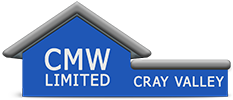
Introduction
Wiring systems, often hidden behind walls and ceilings, deliver power and connectivity throughout homes, offices, and industrial spaces. One key component that has gained prominence for its versatility and cost-effectiveness is the flexible conduit, complemented by a range of accessories. This blog will explore the benefits and applications of flexible conduits and accessories that enhance their performance and contribute to efficient wiring solutions.
Understanding Flexible Conduits:
Flexible conduits are protective tubing systems designed to house and safeguard electrical wires. Unlike rigid conduits, these flexible alternatives offer a degree of bendability, making them ideal for installations where the path may not be straight. Here are some key features and advantages:
1. Versatility:
Flexible conduits are available in various materials, such as PVC, liquid-tight metal, and corrugated tubing, catering to different applications.
They can be easily bent and routed, allowing for adaptability in complex wiring layouts.
2. Cost-Effectiveness:
The materials used in flexible conduits are often more affordable than traditional rigid conduits, contributing to overall cost savings.
Installation costs are reduced due to the flexibility of these conduits, eliminating the need for as many specialized fittings and bends.
3. Resistance to External Factors:
Many flexible conduits resist moisture, oil, and chemicals, ensuring longevity and reliability in diverse environments.
UV-resistant options are available for outdoor installations, preventing degradation from prolonged exposure to sunlight.
Applications of Flexible Conduits:
1. Residential Wiring:
Ideal for routing wires through walls and ceilings where the path may not follow a straight line.
They are used in home automation systems to conceal and protect wiring for smart home devices.
2. Commercial and Industrial Settings:
They are commonly employed in industrial machinery wiring, protecting against vibrations and mechanical stress.
They are used in office spaces for data cabling, ensuring a neat and organized appearance.
3. Outdoor Installations:
Liquid-tight flexible conduits are suitable for outdoor applications, protecting wiring from the elements.
Used in agricultural settings to safeguard electrical components in irrigation systems.
Enhancing Performance with Accessories:
To optimize the functionality of flexible conduits, various accessories are available:
1. Connectors and Fittings:
Couplings and connectors enable the seamless connection of conduits, maintaining the integrity of the wiring path.
Liquid-tight fittings provide additional protection against water and other liquids.
2. Mounting Hardware:
Mounting brackets and clips facilitate secure installation, ensuring the conduits stay in place.
3. Conduit Adapters:
Adapters allow for the transition between different conduit sizes and types, offering flexibility in design and installation.
4. Conduit Hangers:
Hangers support the weight of the conduit, preventing sagging and maintaining a neat and organized appearance.
FAQs:
What are the primary benefits of using flexible conduits in electrical installations?
Flexible conduits offer versatility, cost-effectiveness, and resistance to external factors. They can be easily routed, reducing installation costs and protecting against moisture, chemicals, and mechanical stress.
How do flexible conduits contribute to cost savings in wiring projects?
The affordability of materials and the flexibility of these conduits reduce the need for specialized fittings and bends, lowering both material and installation costs.
In what applications are flexible conduits most commonly used?
Flexible conduits find applications in residential wiring for home automation, industrial settings for machinery wiring, and outdoor installations where protection against the elements is crucial.
What role do accessories play in optimizing the performance of flexible conduits?
Accessories such as connectors, fittings, mounting hardware, and conduit adapters enhance the functionality of flexible conduits. They ensure a secure and organized installation, adapting to different conduit sizes and types.
Are flexible conduits suitable for outdoor installations, and how do they withstand environmental factors?
Yes, certain types of flexible conduits, such as liquid-tight options, are suitable for outdoor use. They are designed to resist UV exposure, moisture, and other environmental factors, providing long-term reliability in outdoor wiring projects.
Conclusion:
In wiring solutions, flexibility, durability, and cost-effectiveness are essential considerations. Flexible conduits and the right accessories offer a versatile and economical option for various applications. Whether in residential, commercial, or industrial settings, the combination of flexible conduits and accessories provides a reliable and efficient wiring solution. As technology advances, the demand for adaptable and cost-effective wiring solutions will grow, making flexible conduits a cornerstone in modern electrical installations.
If you want to take a closer look at our range of Flexible Condiut and Accsessories, click here. If you want to contact or find out more about this blog posts author, Dave Dann, click here.
Related Products
